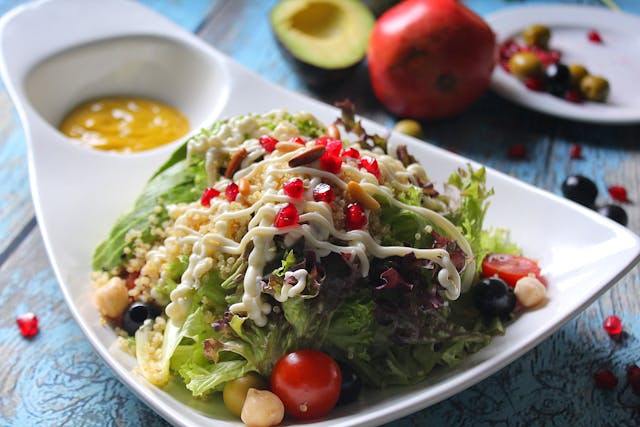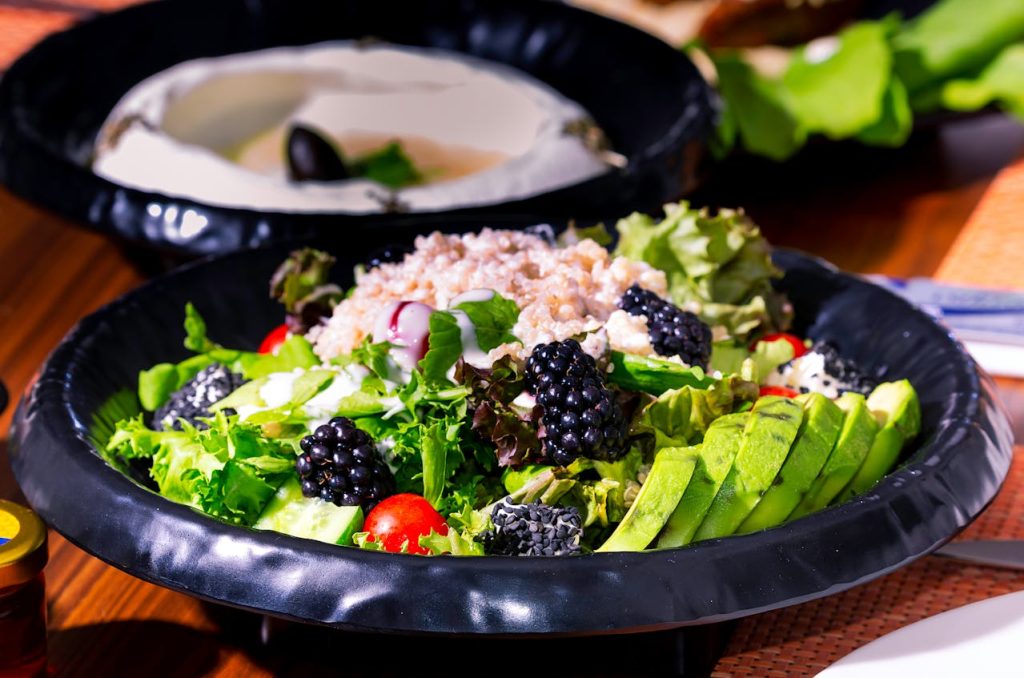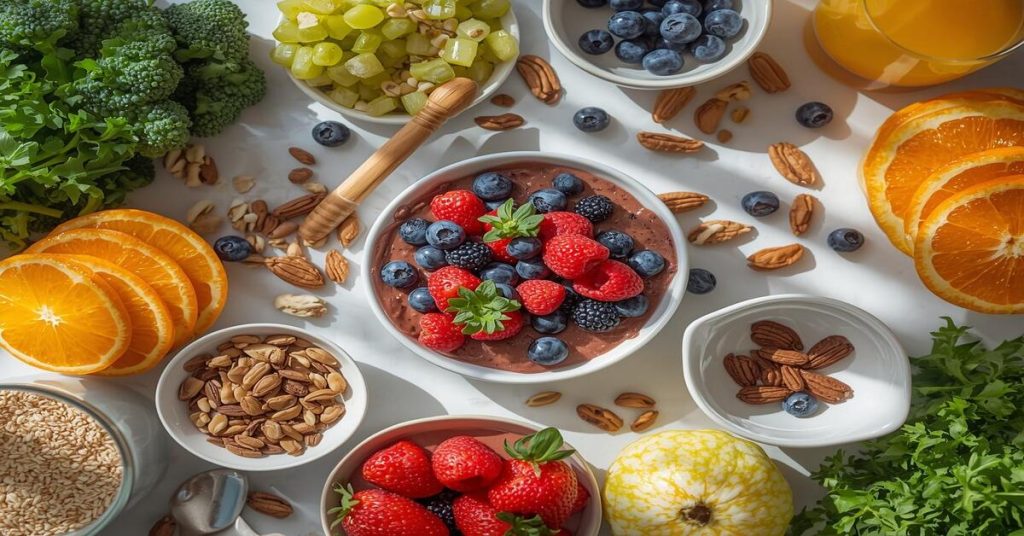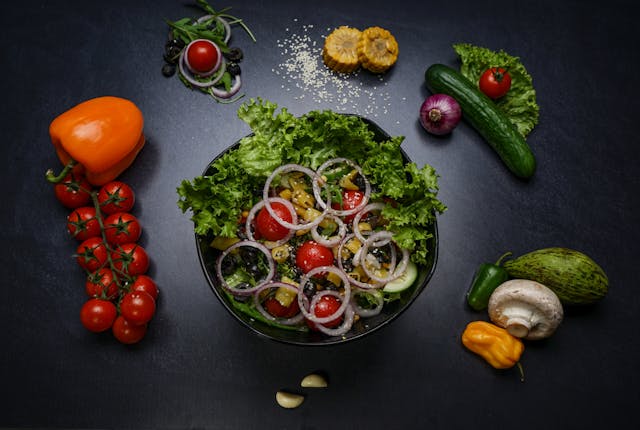🍎 Unlocking the Power of Nutrient-Dense Meals for Lasting Energy & Wellness

Have you ever felt tired even after a full meal? Or struggled with low energy during a busy day? The secret to overcoming this might lie not in how much you’re eating—but *what* you’re eating. Welcome to the world of nutrient-dense meals—a lifestyle of eating that fuels your body with everything it needs, without the unnecessary extras. 🥦🍠
What Are Nutrient-Dense Meals? 🤔
Nutrient-dense meals are foods that provide a high amount of essential nutrients—vitamins, minerals, fiber, lean protein, and healthy fats—relative to their calorie content. That means you get more benefits with fewer empty calories. Think leafy greens, colorful vegetables, lean meats, legumes, seeds, and whole grains. 🌾
Why Nutrient-Dense Eating Matters More Than Ever
- ⚡ Boosts energy naturally—no need for coffee crashes!
- 🧠 Enhances brain focus and mental clarity
- 💪 Supports stronger immunity and faster recovery
- 🩺 Helps prevent chronic diseases like diabetes, heart issues, and obesity
Raed mere: Power Up Your Day with the Best Balanced Plant-Based Snacks for Mid-Day Energy
Top Nutrient-Dense Foods You Should Eat Regularly 🥗
Let’s explore some of the most powerful foods that deserve a spot on your plate daily:
- Spinach – Packed with iron, vitamin C, and antioxidants
- Sweet Potatoes – Full of beta-carotene, fiber, and potassium
- Quinoa – A complete plant-based protein source
- Salmon – Loaded with omega-3s for heart and brain health
- Blueberries – Natural anti-aging and memory-boosting properties
- Lentils – High in iron, protein, and folate
Daily Sample Plan: Building a Nutrient-Dense Plate 🍽️
If you’re not sure how to get started, here’s an example of a day filled with nutrient-dense meals:
🌞 Breakfast:
Oats topped with chia seeds, banana slices, and almond butter + a boiled egg
🌤️ Lunch:
Grilled chicken breast with roasted sweet potatoes and sautéed spinach + a small quinoa salad
🌇 Dinner:
Baked salmon with steamed broccoli, brown rice, and a side of avocado
🍓 Snacks:
Greek yogurt with blueberries or a handful of almonds and pumpkin seeds
Tips to Make Your Meals More Nutrient-Dense 🌟
- ✅ Replace white rice with quinoa or brown rice
- ✅ Choose whole fruits over fruit juices
- ✅ Grill or steam your meals instead of frying
- ✅ Use herbs and spices instead of extra salt
- ✅ Add leafy greens to smoothies or wraps
Hidden Enemies: Foods to Avoid for Better Nutrition 🚫
To get the full benefits of your healthy choices, avoid or reduce the following:
- ❌ Sugary sodas and juices
- ❌ Ultra-processed packaged snacks
- ❌ Refined carbs like white bread
- ❌ Fried fast food with trans fats
Why Most Diets Fail (And How Nutrient-Dense Meals Succeed) 🧩
Quick diets may help you lose weight, but they often leave you malnourished or craving more. Nutrient-dense meals are different—they satisfy your body’s core needs. When your body receives what it truly needs, hunger reduces naturally, and your energy stabilizes.
How to Stick with It: Making Healthy Eating a Habit 🔁
Consistency is key. Here’s how to turn nutrient-dense meals into your daily lifestyle:
- 📅 Plan weekly meals ahead
- 🛒 Keep healthy groceries on hand
- 🍳 Learn 5 quick go-to recipes
- 👨👩👧👦 Involve your family or roommates in healthy cooking
Frequently Asked Questions 🤓
1. Are nutrient-dense meals expensive?
Not necessarily. Buying seasonal fruits and bulk grains like lentils or oats is often cheaper than processed foods in the long run.
2. Can I eat nutrient-dense meals as a vegetarian?
Absolutely! Beans, lentils, tofu, quinoa, and vegetables provide everything you need.
3. How fast will I see results?
Within 1–2 weeks, most people report better digestion, stable energy, and improved focus. Long-term results include better immunity, skin glow, and weight control.
Read more: Nutrient-Dense Diet: Your Ultimate Guide to Healthy Eating and Lasting Energy 🍎💪
📌 Bonus: Easy Grocery List for Nutrient-Dense Eating 🛒
- 🥬 Kale, Spinach, Broccoli
- 🍠 Sweet Potatoes, Carrots
- 🥚 Eggs, Greek Yogurt, Tofu
- 🍚 Quinoa, Brown Rice, Lentils
- 🐟 Salmon, Sardines, Chicken Breast
- 🍓 Blueberries, Apples, Bananas
- 🥑 Avocados, Almonds, Chia Seeds
How Nutrient-Dense Meals Impact Your Daily Energy 🔋
Many people experience that familiar 3 PM crash—the sudden drop in energy that leaves you yawning and craving sugar or caffeine. This isn’t because your body needs more food—it’s because your body didn’t get the *right* food. The key lies in choosing nutrient-dense meals throughout the day that provide stable energy release instead of quick bursts followed by fatigue.
Unlike fast carbs and sugar-laden snacks that spike blood sugar and then drop it like a stone, meals rich in fiber, complex carbs, healthy fats, and proteins nourish your body slowly and steadily. Think of it like fueling a fire with solid wood rather than paper—it burns longer and stronger. 🔥
The Gut Connection: Why Your Digestion Loves Nutrient-Dense Meals 🦠
A healthy gut is the gateway to overall health. And guess what your gut microbes love? You guessed it—fiber-rich, colorful, whole foods. Nutrient-dense meals tend to include prebiotics like garlic, onions, oats, and bananas, which feed the good bacteria and support digestion.
When your gut microbiome is happy, it reduces inflammation, improves nutrient absorption, and even balances mood. A diverse diet of whole, unprocessed foods helps build a resilient gut ecosystem that keeps your immune system strong and your brain sharp.
Nutrient-Dense Meals for Mental Clarity 🧠✨
There’s a growing connection between what we eat and how we think. Omega-3 rich foods like salmon and walnuts have been shown to improve memory and focus. Leafy greens like kale and spinach are packed with folate, a B-vitamin essential for neurotransmitter function.
Instead of relying on stimulants like coffee or energy drinks, imagine feeding your brain with natural fuel. Regular consumption of nutrient-dense meals may reduce brain fog, lower anxiety, and even support long-term brain health.
The Weight Loss Myth: Eat More, Not Less! 🥑
Yes, you read that right. Instead of cutting calories, the smarter way is to **replace empty calories with nutrient-rich ones**. You can eat a hearty plate filled with roasted veggies, whole grains, lean protein, and avocado, and still lose fat because you’re providing your body with what it needs. 🧘♀️
Most people overeat because their bodies are still *hungry* for nutrients, not calories. When you fill your plate with nutrient-dense meals, satiety naturally increases, cravings reduce, and sustainable weight management becomes easier.
What Makes a Meal Truly Nutrient-Dense? 🧐
It’s not just about counting calories or carbs. To truly call a meal “nutrient-dense,” it should tick off these boxes:
- 🌈 Colorful vegetables for vitamins and antioxidants
- 🌾 Whole grains or root vegetables for slow-burning carbs
- 🥜 Healthy fats like olive oil, nuts, and seeds
- 🥚 A good source of protein: eggs, beans, tofu, fish, or lean meat
- 💧Hydrating ingredients like cucumbers, berries, or soups
Balance is key. And remember: simplicity is beautiful. A three-ingredient meal can be more powerful than a plate full of processed items.
Read more: “15 Healthy Eating Habits for Better Energy and Wellness”
Eating Seasonally = Naturally Nutrient-Dense 🗓️
Eating with the seasons is a simple way to boost nutrient intake. Seasonal fruits and vegetables are harvested at their peak freshness, offering more vitamins, minerals, and flavor than out-of-season produce.
For example:
- 🍊 Winter: Citrus fruits for vitamin C
- 🥬 Spring: Asparagus and leafy greens for detox and vitality
- 🍅 Summer: Tomatoes, zucchini, berries for hydration and antioxidants
- 🍠 Autumn: Squash, root vegetables, apples for fiber and immunity
Eating seasonally is also cheaper and environmentally friendly. And when combined with nutrient-dense meals, you’re winning from all sides!
Budgeting for Better Health: Is It Possible? 💰✅
Absolutely. You don’t need fancy superfoods or imported items to eat healthy. Some of the best nutrient-dense meals can be made with:
- 🍛 Lentils – high in protein, iron, and super affordable
- 🍚 Brown rice – long-lasting and packed with minerals
- 🥕 Carrots and cabbage – cheap, local, and vitamin-rich
- 🧅 Onion and garlic – immunity-boosting base ingredients
- 🥜 Peanuts and seeds – protein and healthy fats at low cost
A little planning goes a long way. Buy in bulk, meal prep on weekends, and reduce food waste by storing smartly.
Eating for All Ages: How Nutrient-Dense Meals Help Your Family 👨👩👧👦
From toddlers to seniors, every age group benefits from this eating style:
- 👶 Babies: Building brain and bone development with good fats and calcium
- 👧 Kids: Supporting growth with iron, zinc, and B-vitamins
- 🧑 Adults: Maintaining energy, hormones, and muscle with balanced nutrition
- 👵 Seniors: Preventing bone loss, memory decline, and immunity drops
Making nutrient-dense meals a family affair can transform everyone’s health journey together.
Creating a Personal Meal Framework That Works Long-Term 🧩
Here’s a simple way to build your own framework for everyday eating:
- Choose a base: Whole grains like oats, quinoa, brown rice
- Add veggies: Mix colors—greens, oranges, purples!
- Add protein: Eggs, fish, beans, tofu, or meat
- Add healthy fat: Olive oil, nuts, seeds, avocado
- Finish with herbs: Basil, cilantro, turmeric, ginger
Rotate ingredients weekly. This keeps things exciting and nutritionally diverse. Eating doesn’t have to be boring when your plate is this vibrant.
What Science Says About Nutrient-Dense Diets 🔬📖
Multiple studies confirm that diets high in nutrient-dense foods reduce the risk of:
- ✔️ Type 2 diabetes
- ✔️ Obesity and belly fat
- ✔️ Depression and anxiety
- ✔️ Cardiovascular disease
- ✔️ Premature aging
Doctors, nutritionists, and wellness experts agree: nutrient-dense meals are not a trend—they are the foundation of lifelong health.
Real-Life Success: How One Change Transformed a Life 💡
Take Sarah, a 38-year-old mother of two. She felt tired, bloated, and moody. After replacing processed snacks with colorful bowls of vegetables, grains, and proteins, her energy returned. She lost 9 kg in 4 months, slept better, and became more productive at work.
The change wasn’t complicated—just smart choices, one meal at a time. That’s the power of nutrient-dense meals.
Raed more: 15 Healthy Eating Habits to Boost Energy & Wellness 🌿
Mindful Eating Meets Nutrient-Dense Living 🧘♂️🍽️
We often talk about *what* we eat—but rarely about *how* we eat. Even if your plate is full of nutrient-dense meals, if you’re distracted, rushed, or emotionally overwhelmed, you might not absorb all its benefits. That’s where mindful eating comes in.
Mindful eating means paying attention to each bite. It’s about slowing down, chewing thoroughly, and appreciating the textures, colors, and flavors of real food. This simple practice has powerful effects: it improves digestion, prevents overeating, and builds a healthier relationship with food.
Combine mindful eating with nutrient-dense meals and you’ll not only feel physically full—you’ll feel emotionally nourished too.
Meal Prepping: A Lifesaver for Busy, Healthy Living ⏰
One of the biggest challenges people face with healthy eating is time. When you’re hungry and tired, the convenience of fast food is hard to resist. But with a little preparation, nutrient-dense meals can be just as fast—and way more fulfilling.
Spend one or two hours on a weekend to:
- 🥗 Chop vegetables and store in glass containers
- 🍗 Cook protein options like grilled chicken or lentils in batches
- 🍚 Boil brown rice or quinoa to use in multiple meals
- 🥣 Prepare sauces or dressings made from natural ingredients
Label everything, store smartly, and you’ll have all the building blocks ready. When you return home after work or a workout, you can assemble your meals in under 10 minutes. Healthy doesn’t have to mean hard.
How to Dine Out Without Ditching Nutrition 🍴
Yes, you can enjoy restaurants and still stick to your nutrient-dense meals goals. Dining out doesn’t mean you have to surrender your health. Here’s how:
- ✅ Choose grilled, roasted, or steamed options over fried
- ✅ Ask for dressing or sauce on the side
- ✅ Swap fries for salad or steamed veggies
- ✅ Go for whole grain sides when available
- ✅ Avoid sugary beverages—opt for water, lemon water, or green tea
Also, eat slowly, savor your food, and stop when you’re satisfied—not stuffed. Restaurants are about the experience, not just the food.
Fueling Your Workouts with Nutrient-Dense Meals 🏋️♀️
What you eat before and after workouts has a direct impact on performance, muscle repair, and energy. Forget synthetic supplements—whole food nutrient-dense meals give your body everything it needs.
Before Workout:
A mix of complex carbs + light protein gives you sustained energy.
Try: A banana with peanut butter or oatmeal with almond milk.
After Workout:
The goal is to refuel, rebuild muscles, and hydrate.
Try: Grilled chicken with quinoa and roasted veggies, or a smoothie with spinach, Greek yogurt, chia seeds, and berries.
Hydration is key too—include coconut water or water-rich fruits like watermelon or cucumber in your routine.
Smart Swaps to Upgrade Everyday Meals 🔁
You don’t need to give up your favorite foods to eat better. Just upgrade them! Here are some easy swaps to make your regular meals more nutrient-dense:
| Instead of | Try This |
|---|---|
| White rice | Quinoa or brown rice |
| White bread | Whole grain or sprouted bread |
| Chips | Roasted chickpeas or air-popped popcorn |
| Sugary cereal | Oats with fruit and nuts |
| Soda | Infused water or herbal tea |
These small, consistent choices add up—and soon, your body will start craving real nourishment over processed options.
Reading Nutrition Labels Like a Pro 📦
Ever picked up a “healthy” snack only to discover it’s loaded with sugar, salt, or artificial junk? That’s why reading labels is essential. When choosing foods for your nutrient-dense meals, look for:
- Short ingredient lists (5–8 whole ingredients)
- No added sugars or hidden sweeteners
- Whole food sources listed at the top (like oats, lentils, nuts)
- Healthy fats (olive oil, nuts) instead of hydrogenated oils
If you can’t pronounce an ingredient or it sounds like it belongs in a lab, it probably shouldn’t go in your body.
How Nutrient-Dense Meals Support Hormone Balance ⚖️
Your hormones are the body’s messengers—and what you eat affects them dramatically. Nutrient-dense foods like fatty fish, flaxseeds, and leafy greens can support hormonal balance, reduce PMS symptoms, improve sleep, and regulate blood sugar.
On the other hand, ultra-processed foods, trans fats, and excess sugar can throw your hormones out of whack, leading to mood swings, fatigue, acne, and more. Fueling your body with nutrient-dense meals helps keep these systems in harmony.
Building Confidence Through Better Nutrition 💃
It’s not just about the body—it’s about how you feel *in* your body. Eating better helps you think more clearly, move with ease, and feel proud of the choices you make. As you nourish yourself, your confidence grows.
Whether you’re aiming to shed weight, manage stress, or boost your immunity, committing to nutrient-dense meals empowers you from the inside out. This journey isn’t about perfection—it’s about progress, sustainability, and self-love. 💗
Small Wins That Lead to Big Results 🎯
Start with a single habit:
- Replace one soda with infused water each day
- Add one vegetable to your dinner plate
- Prepare one meal at home instead of ordering out
Then watch how these small wins multiply. Your energy will rise, your cravings will decrease, and soon your body will begin to crave what’s good for it.
🌍 A Sustainable Approach to Food and the Planet
When you eat more whole, plant-based, and locally sourced nutrient-dense meals, you not only support your health—but also the planet. Less packaging, less waste, fewer emissions.
Your diet becomes not just a personal choice, but a conscious one.
This harmony with nature reflects in your well-being: the food you eat, the energy you share, and the life you build.
Final Thoughts 💬

Healthy eating doesn’t need to be about restrictions. It’s about giving your body what it truly deserves. With nutrient-dense meals, you fuel yourself with clean energy, clearer thoughts, and better overall health. Start small, stay consistent, and enjoy every bite of this nourishing journey. 🍽️🌱
For more insights, explore this comprehensive guide on nutrient density by Harvard School of Public Health and this list of nutrient-dense foods curated by Healthline.



Pingback: Ultimate 7-Day Clean Eating Meal Plan for Beginners to Boost Energy